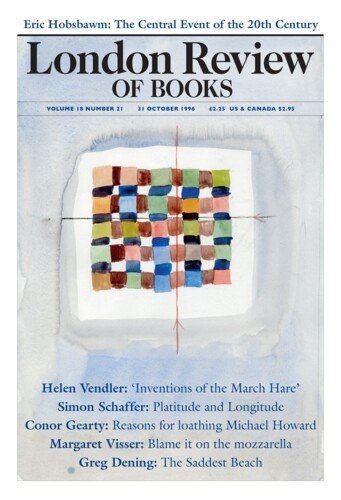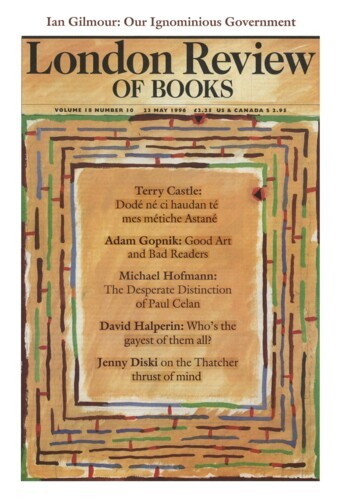Inhumane, Intolerant, Unclean
Ian Gilmour, 31 October 1996
What exactly is a ‘holy city’ or, for that matter, a ‘holy see’? If Jerusalem is the prime example of the first and Rome the only example of the second, their holiness clearly does not reside in the behaviour of either their rulers or the ruled. More evil has been done in Jerusalem than in many, if not most, places on earth, and in Rome Papal conduct and government has sometimes been anything but holy – in the mid-18th century the city’s 150,000 inhabitants averaged four hundred murders a year.’





